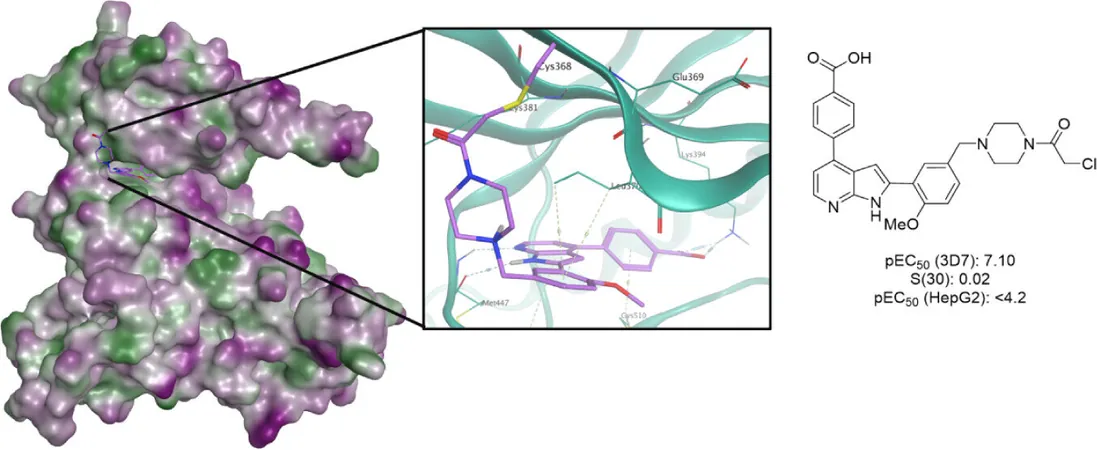
Revolutionary New Drug Offers Hope in the Battle Against Drug-Resistant Malaria!
2024-11-04
Author: Daniel
Revolutionary New Drug Offers Hope in the Battle Against Drug-Resistant Malaria!
In a stunning breakthrough, an international team of researchers has unveiled a promising new drug that could turn the tide in the relentless fight against treatment-resistant malaria. This cutting-edge development is the first to adapt a strategy commonly used in cancer treatments specifically to combat one of the most deadly parasitic diseases known to humanity.
The innovative treatment targets Plasmodium falciparum—the primary strain of the malaria parasite known for its resistance to existing medications like artemisinin. By permanently inhibiting a crucial protein known as PfCLK3, the drug effectively disrupts the parasite's replication process within the human bloodstream, potentially making it a game-changer in malaria treatment.
Led by chemists and bioscientists from the University of Glasgow, the research findings were detailed in a study titled "Targeting PfCLK3 with Covalent Inhibitors: A Novel Strategy for Malaria Treatment," published in the Journal of Medicinal Chemistry. The researchers claim the new drug could not only outperform current treatments at any stage of malaria infection but might also be effective as a single-dose remedy.
With nearly a quarter of a billion malaria cases reported globally each year, leading to over 600,000 deaths annually, the urgency for effective treatments is palpable. As Professor Andrew Jamieson, one of the study's authors, stated, “During the pandemic, progress against malaria stalled, while resistance to drugs like artemisinin increased.” He emphasized the need for innovative approaches to strengthen our defenses against this pervasive disease.
The drug's mechanism of action involves a highly selective binding process—a chemical "grappling hook"—that firmly attaches to the PfCLK3 protein, effectively shutting down the parasite's ability to proliferate. The implications are monumental; rather than merely managing symptoms or slowing the disease, this drug targets the core of the problem.
Ph.D. student Skye Brettell, a key contributor to the research, noted that traditional covalent kinase inhibitors used in cancer treatments often yield undesirable side effects due to their lack of specificity. However, the newly developed molecule exhibits remarkable precision, minimizing potential adverse effects in human patients.
Through rigorous testing and collaboration with the University of Edinburgh and Columbia University, researchers confirmed the drug's ability to bind permanently to its target and showed that the malaria parasites were incapable of developing resistance over time. "These are incredibly robust results,” Skye stated, emphasizing the drug's potential durability and effectiveness throughout all stages of the malaria parasite's life cycle.
The researchers are now poised to seek additional funding to advance toxicological studies, a critical step toward ensuring that this revolutionary treatment can safely be administered to patients. Furthermore, Keltic Pharma, a spinout from the University of Glasgow, is dedicated to developing this next-generation treatment and highlights the effectiveness of collaborative research across disciplines, crucial for tackling real-world health challenges.
With the Mazumdar-Shaw Advanced Research Center providing essential resources, Professor Jamieson expressed optimism about the future, stating, “This project exemplifies how multidisciplinary collaboration can accelerate scientific discovery and innovation.”
As the world grapples with the ongoing threat of malaria, this new drug represents a beacon of hope—offering the possibility of not only curbing the impact of drug-resistant strains but potentially paving the way for a one-shot cure. This is a tale of hope, innovation, and the relentless pursuit of solutions in the face of adversity!


 Brasil (PT)
Brasil (PT)
 Canada (EN)
Canada (EN)
 Chile (ES)
Chile (ES)
 España (ES)
España (ES)
 France (FR)
France (FR)
 Hong Kong (EN)
Hong Kong (EN)
 Italia (IT)
Italia (IT)
 日本 (JA)
日本 (JA)
 Magyarország (HU)
Magyarország (HU)
 Norge (NO)
Norge (NO)
 Polska (PL)
Polska (PL)
 Schweiz (DE)
Schweiz (DE)
 Singapore (EN)
Singapore (EN)
 Sverige (SV)
Sverige (SV)
 Suomi (FI)
Suomi (FI)
 Türkiye (TR)
Türkiye (TR)